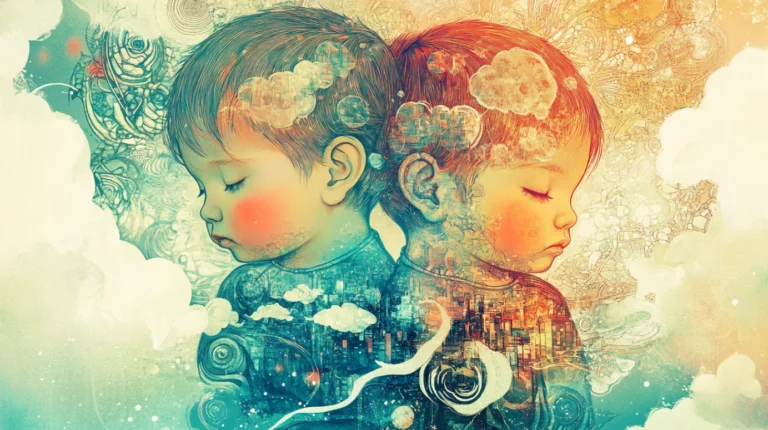Are you curious about the meaning behind your dreams? Do you want to understand the symbolism in your subconscious mind? Hindu dream interpretation offers a unique perspective that can help you unravel the mysteries of your dreams. In this guide, we will delve into the rich tradition of Hindu dream analysis, exploring the significance of various symbols and themes. By the end of this post, you will have a deeper appreciation for the messages your dreams are trying to convey.
What is Hindu Dream Interpretation?
In Hinduism, dreams are believed to be messages from the divine realm. They are seen as reflections of our innermost thoughts, fears, desires, and emotions. Hindu dream interpretation is a complex and intricate practice that draws upon ancient texts, cultural traditions, and spiritual beliefs.
In Hinduism, dreams are classified into three categories:
-
Sattvic dreams: These dreams are considered pure and uplifting. They may be prophetic or spiritual in nature, offering guidance and inspiration.
-
Rajasic dreams: These dreams are driven by worldly desires, ego, and material pursuits. They are often seen as distractions from the spiritual path.
-
Tamasic dreams: These dreams are characterized by negativity, fear, and dark emotions. They may reflect unresolved issues or inner conflicts.
The Symbolism of Common Dream Elements
In Hindu dream interpretation, various symbols and themes carry specific meanings. Here are some common dream elements and their interpretations:
-
Animals: Animals in dreams can symbolize various qualities or characteristics. For example, a snake may represent wisdom and transformation, while a lion may symbolize courage and strength.
-
Water: Water is often associated with emotions, unconscious thoughts, and spiritual purification. The state of the water (calm, turbulent, murky) can offer insights into your emotional state.
-
Temples: Temples in dreams are seen as sacred spaces that represent spiritual growth, devotion, and connection to the divine. Visiting a temple in a dream may signify a need for inner reflection and spiritual practice.
-
Flying: Flying in dreams is often interpreted as a symbol of freedom, transcendence, and liberation from limitations. It may indicate a desire for independence or a higher perspective on a situation.
How to Interpret Your Dreams
To interpret your dreams in the Hindu tradition, follow these steps:
-
Keep a Dream Journal: Write down your dreams as soon as you wake up, capturing as many details as possible. This will help you identify recurring themes and symbols.
-
Reflect on the Emotions: Pay attention to the emotions you experienced in the dream. Emotions can offer valuable insights into the underlying messages of the dream.
-
Consult a Dream Dictionary: Hindu dream dictionaries can help you decipher the symbolism of common dream elements. Look up key symbols to understand their meanings in the context of your dream.
-
Meditate on the Dream: Take time to meditate on the dream and its significance. Quiet your mind and allow insights to surface naturally.
-
Seek Guidance: If you are unsure about the interpretation of a dream, seek guidance from a spiritual mentor, guru, or dream interpreter.
Examples of Dream Interpretation
Let’s consider a few examples of dream interpretation in the Hindu tradition:
-
Dream of a Lotus Flower: A lotus flower symbolizes purity, beauty, and spiritual awakening. Dreaming of a lotus may indicate a transformation or a new beginning in your spiritual journey.
-
Dream of a Snake: In Hinduism, a snake is often associated with Kundalini energy, wisdom, and transformation. A dream of a snake may signify a need for healing, shedding old habits, or tapping into your inner wisdom.
-
Dream of a River: A river represents the flow of life, emotions, and spiritual energy. Dreaming of a calm, clear river may indicate inner peace and emotional balance, while a turbulent river may suggest turmoil or emotional challenges.
Conclusion
Hindu dream interpretation offers a fascinating lens through which to explore the rich tapestry of the subconscious mind. By studying the symbols, themes, and messages in your dreams, you can gain valuable insights into your inner world and uncover hidden truths about yourself. Remember to approach dream interpretation with an open mind and a sense of curiosity, as each dream has the potential to reveal profound wisdom and guidance. Happy dreaming!







